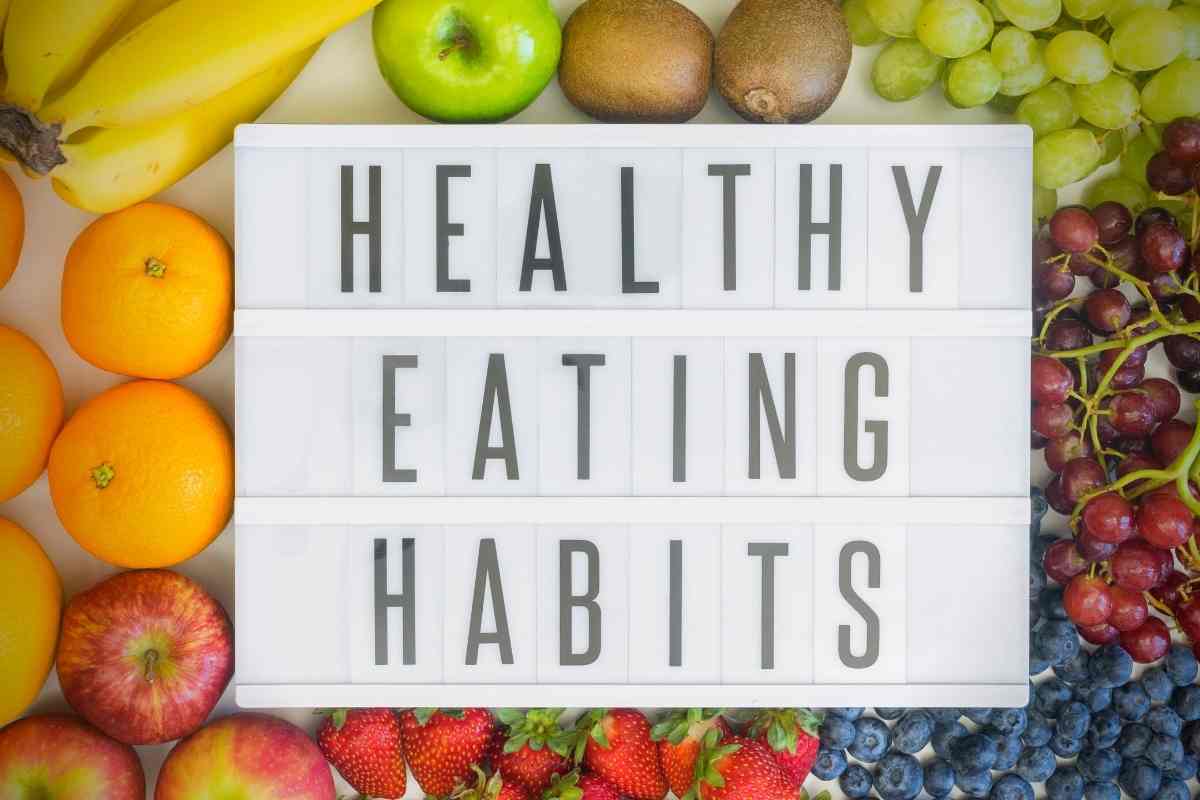Healthy Eating Tips for a Better Lifestyle: For keeping a balanced diet and living a healthy lifestyle, healthy eating is essential. It can improve energy levels, prevent a number of health issues, and even improve mood and mental clarity. We will offer advice for healthy eating practices in this article that you can simply adopt into your everyday schedule.
What Are Healthy Eating Tips for a Better Lifestyle?
The following are some suggestions for a healthier diet and lifestyle:
1. Understanding the Importance of a Balanced Diet
To make sure that your body is getting all the necessary nutrients for maximum operation, you must eat a balanced diet. All food groups should be included, including fruits, vegetables, whole grains, lean meats, and healthy fats.
Imagine your body like an automobile to help you comprehend the value of a balanced diet. Your body requires fuel in the form of food in order to operate, much like a car does. How well your body functions depends on the type of fuel you give it.
Source:
2. Incorporating More Fruits and Vegetables into Your Diet
Vegetables and fruits are crucial components of a healthy diet. They can aid in the prevention of chronic diseases including heart disease, diabetes, and some forms of cancer since they are high in vitamins, minerals, and fibre.
Try to make fruits and vegetables the main course of your meals to ensure that you are consuming enough of them. Start your day with a fruit smoothie or an omelette packed with vegetables, for instance, then eat a salad for both lunch and dinner. As an alternative to junk food, you could try munching on raw fruits and veggies.
3. Choosing Whole Grains over Refined Grains
Fiber, vitamins, and minerals are all abundant in whole grains. They can support digestive health, decrease cholesterol, regulate blood sugar, and lower blood pressure. Refined grains, on the other hand, are devoid of necessary nutrients and might lead to weight gain and other health issues.
Look for whole-grain versions of breads, pasta, and rice to add more whole grains to your diet. You can have whole grain crackers for a snack or whole grain cereal for breakfast.
4. Lean Proteins for Better Health
A nutritious diet should contain lean proteins. They can support energy production, the immune system, and muscle growth and repair. Lean protein is found in foods including chicken, fish, beans, and tofu.
Try to concentrate on lean meat cuts when selecting proteins and stay away from processed meats like bacon and sausages. For a delicious and healthful alternative, consider include plant-based proteins like tofu and beans in your diet.
5. Healthy Fats for a Healthy Lifestyle
Not all fats are bad, despite common opinion. In fact, monounsaturated and polyunsaturated fats are two examples of good fats that might be advantageous to your health. These beneficial fats can enhance brain function, lower cholesterol levels, and lower the risk of heart disease.
Avocados, almonds, and olive oil are all excellent sources of healthful fats. As too much of anything can be bad, try to include these in your diet in moderation.
See Also: The Best Easy Healthy Food Recipes Diet Plan
The Bottom Line
A healthy lifestyle depends on eating a nutritious, balanced diet. You may prevent chronic diseases, boost energy levels, and feel your best by including more fruits and vegetables, whole grains, lean meats, and healthy fats in your diet. Why then wait? Start making wholesome decisions right now!
FAQs: Healthy Eating Tips for a Better Lifestyle
Q1. What Is a Balanced Diet and Why Is It Important?
Including a range of foods from all food groups, such as fruits, vegetables, whole grains, lean proteins, and healthy fats, constitutes a balanced diet. It is crucial because it gives the body all the nutrition it requires to function at its best and fend against chronic illnesses.
Q2. How Can I Incorporate More Fruits and Vegetables into My Diet?
Make fruits and vegetables the main course of your meals to include more of them in your diet. Start each day with a fruit smoothie or an omelette packed with vegetables, then serve salad for lunch and dinner. As an alternative to junk food, you could try munching on raw fruits and veggies.
Q3. What Is the Difference Between Whole Grains and Refined Grains?
Fiber, vitamins, and minerals are all abundant in whole grains. They can support digestive health, decrease cholesterol, regulate blood sugar, and lower blood pressure. On the other hand, refined grains are devoid of vital nutrients and might lead to weight gain and other health issues.
Q4. What Are Lean Proteins and Why Are They Important?
A nutritious diet should contain lean proteins. They can support energy production, the immune system, and muscle growth and repair. Lean protein is found in foods including chicken, fish, beans, and tofu.
Q5. Are All Fats Bad for You?
No, all fats are not harmful. Monounsaturated and polyunsaturated fats are two examples of healthy fats that can truly be good for your health. These beneficial fats can enhance brain function, lower cholesterol levels, and lower the risk of heart disease. Avocados, almonds, and olive oil are all excellent sources of healthful fats.
